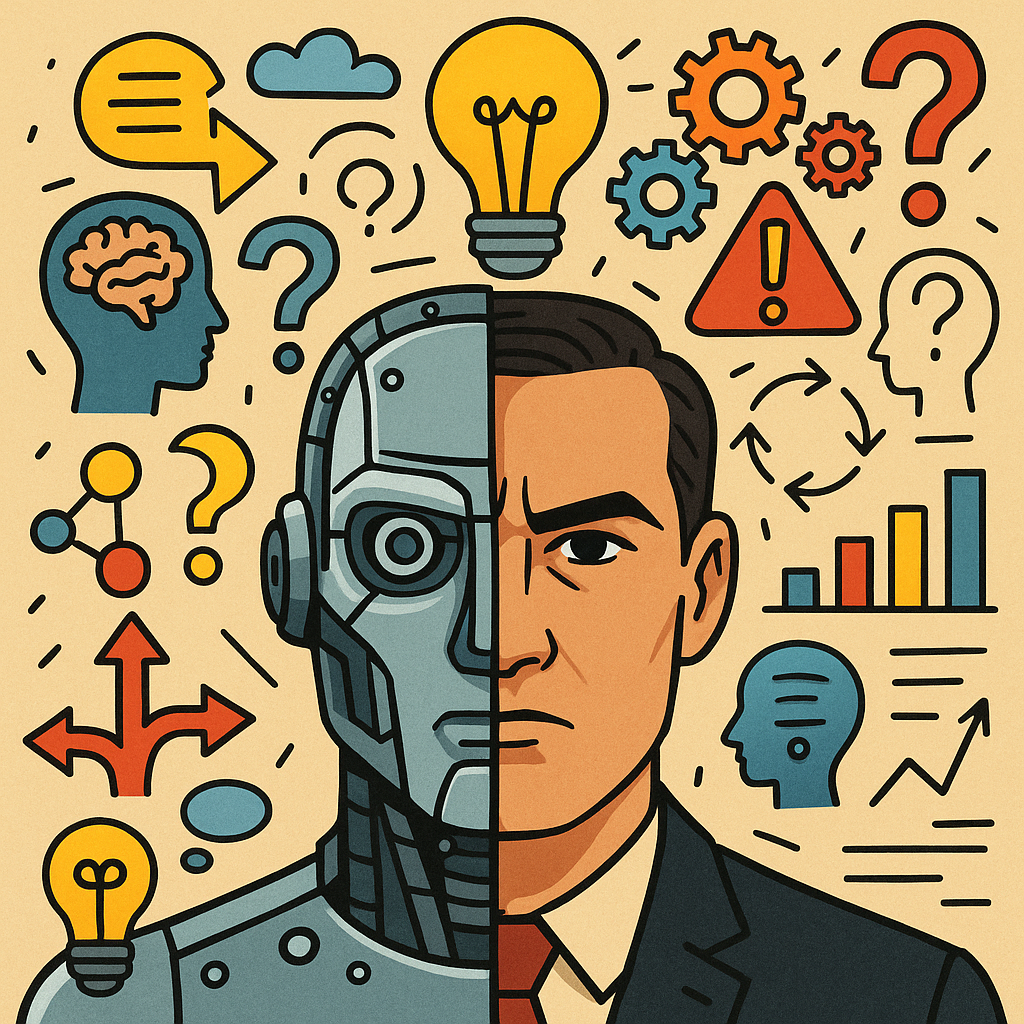Man and Machine Harmony
That is the response Chanchad offers to his professor in the movie 3 Idiots when asked to provide a definition for the word “machine.” While intended to serve as a stepping-stone toward a commentary on the defectiveness of education systems, this statement effectively captures the essence of what machines are supposed to be.
From the prehistoric hand axe to the latest technologically advanced gadgets, machines have always served a single purpose: making things easier for humans. The invention of the wheel made transportation easier, the phone made long-distance communication easier, the internet made access to information easier, and with the dawn of AI, even some of the most fundamental human activities — critical thinking and decision-making — have become, to put it optimistically, easier.
But there’s a caveat. While AI tools have the potential to enhance human life in various aspects including productivity, creativity, and critical thinking, they have to be used correctly and cautiously. However, the natural human tendency to take the path of least resistance stands as a big obstacle in the way.
A recent study done in the UK revealed amongst its subjects an over-dependence on AI. People confessed to using AI for making all kinds of basic decisions and sometimes using it as a replacement for thinking. Furthermore, the study found a strong negative correlation between subjects’ use of AI tools and critical thinking skills, meaning those who relied the most heavily on AI tools displayed weaker critical thinking skills on average.
Everyone is becoming increasingly reliant on using AI and using it for all kinds of things. To a lot of people, AI tools are an easy way out. They’re a convenient alternative to effort and struggle, which although uncomfortable, ultimately lead to actual growth and development.
Now, it has to be said that the problem, of course, is not AI. AI is an amazing tool. And like all tools, the good and the bad lie in the way it’s used. The correct use of AI would enhance human capabilities, not hinder them. And what constitutes using AI correctly will vary from person to person.
“Use it or lose it” is the basic principle of human neuroplasticity. The things we don’t exercise on a regular basis atrophy. So, the choice of what to delegate to AI and what to keep for yourself is each individual’s to make and can change with time and setting. There’s no single right or wrong answer.
A smart and responsible use of AI requires self-examination. You have to know your values and the things that are important to you. You cannot automate every single aspect of your life. Some things are just better when they are given the human touch. You have to decide what those things are for you. Once these things are clear in your mind, you can dive head-first into the exciting world of AI without fear. Then, AI becomes a superpower that accelerates growth and success in your life.

